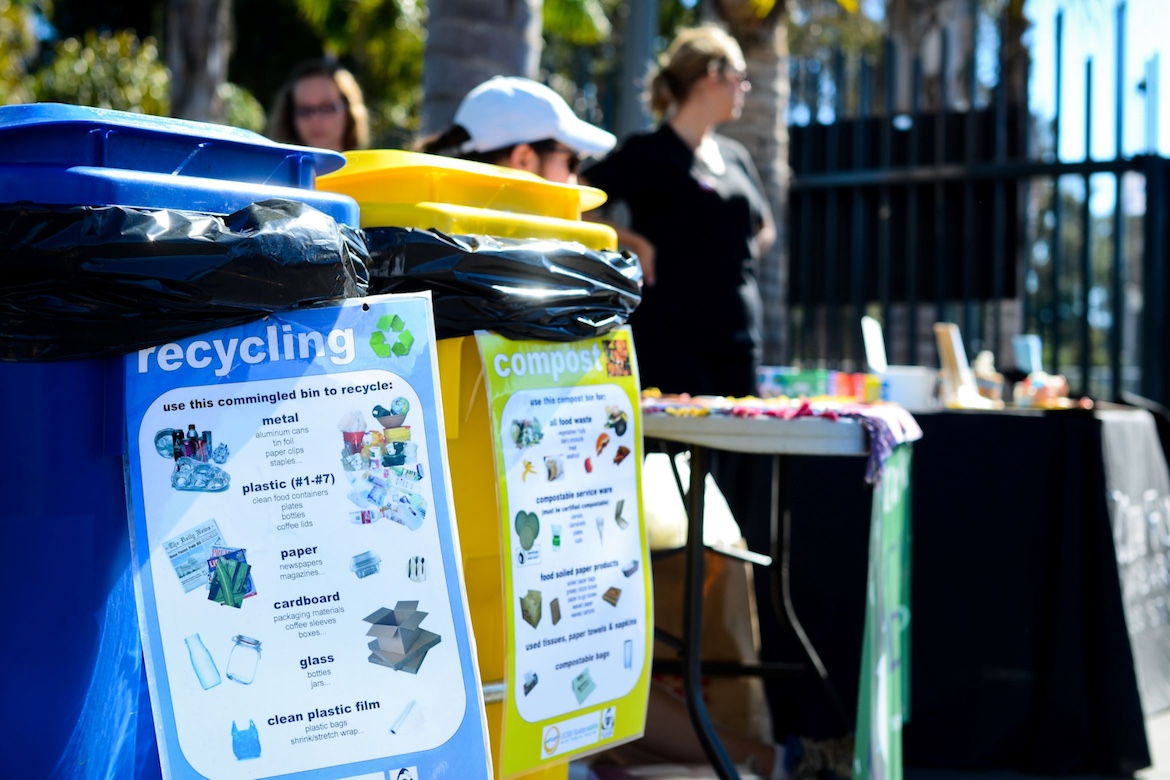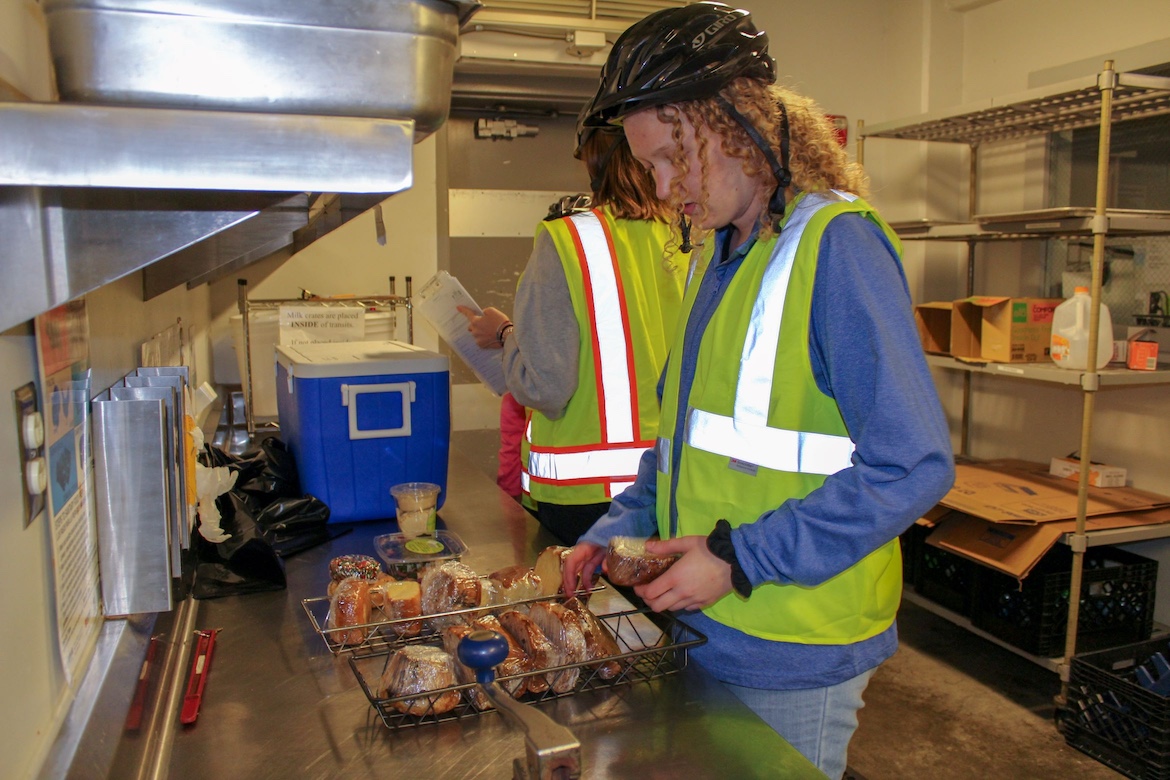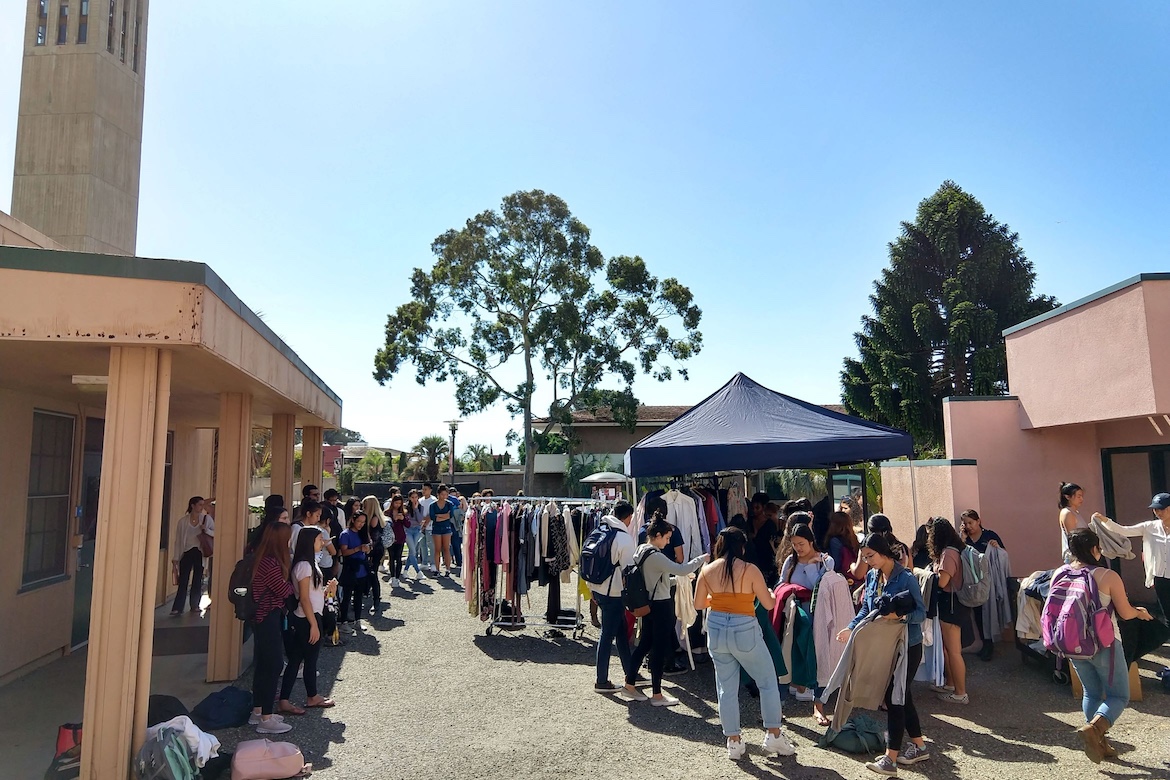The University of California, Santa Barbara (UCSB) is committed to reducing resource waste and pollution through waste management programs and effective communication. UCSB has been implementing waste reduction, reuse, recycling, composting, and repurposing programs and practices for the past five decades. With the new County ReSource Center, recyclables and organics are separated from trash, and organics are transformed into compost and energy that powers up to 3,000 homes per year. With this new facility additional waste from our trash is diverted from the landfill while significantly reducing greenhouse gas emissions. Recycling and composting on campus is still encouraged as the preferred alternative.

Single Use Plastics Policy
The UC campuses are phasing out single-use plastics as part of our waste reduction efforts. The UC Policy on Sustainable Practices requires each UC to transition away from plastic bags in retail and dining locations and eliminate single-use plastic foodservice items and beverage bottles.
Check out UC’s Single Use Plastics Policy Guide for students to see some preferred and acceptable alternatives to common plastic items!

Food Recovery
The Food Recovery Program utilizes food items that would otherwise be composted from Campus Dining Commons and saves these items to provide to the Miramar Pantry. By redirecting unspoiled food, we continue to be leaders in our community, supporting our students by addressing food insecurity and reducing our environmental impact.

Source Reduction
UCSB is committed to reducing resource use by implementing sustainable procurement and use practices, such as restricting the use of virgin paper, expanded polystyrene (EPS), single-use plastics, and setting procurement guidelines for printer furniture, and equipment that reduce life cycle impacts. UCSB also has several diversion programs, including a Shoe & and sports waste recycling program as well as a Lab Glove takeback program

Shoe Recycling
Launched in 2023, the UCSB Shoe Recycling Program is a collaborative effort between the AS
Zero Waste Committee and the AS Recycling Program to reduce campus waste and promote
sustainable reuse. All collected shoes are sent to GotSneakers, a national organization that
recycles or resells footwear to extend its life and reduce landfill waste. Since its start, the
program has successfully recycled over 1,500 pairs of shoes. Students, staff, and community
members can contribute by dropping off their gently used or worn-out shoes at the permanent
collection bin located in the UCSB Recreation Center lobby.